
Study in Ireland
Ireland is renowned for its rich educational heritage and is a proud member of the European Union with a predominantly English-speaking population. In 2019, the United Nations ranked Ireland 16th among the happiest countries worldwide, reflecting the high quality of life and overall well-being that students can enjoy while studying abroad there. Ireland’s economy is booming and ranks 6th globally in competitiveness, with over 1,000 multinational company headquarters established across the country. The Irish government has heavily invested in creating a world-class education system, resulting in modern, well-equipped institutions. Each year, around 35,000 international students from over 160 countries are drawn to Ireland’s vibrant culture and welcoming lifestyle. The majority of foreign students come from the United States, India, Malaysia, Canada, Saudi Arabia, and China. For those planning to study abroad, healthcare courses remain a popular and promising career choice. To navigate course options, university availability, visa requirements, and more, it’s wise to consult experienced study abroad advisors such as MasterKey Solutions. Their expert guidance can help make your journey to studying in Ireland smooth, informed, and successful.
Among many reasons to study in Ireland, safety stands out as one of the most important. The country is generally considered very safe, with minimal incidents of violence against international students or ethnic minorities. According to the Irish government, students are allowed to stay in Ireland for one to two years after completing their courses to seek employment opportunities. Take advantage of free study abroad counseling to prepare yourself for a successful and promising career.

Universities | Colleges | Institutes of Technology
8 in number and State-funded
Generally autonomous
Offer Ordinary Bachelors and Honours Bachelor’s degree, Masters, Doctoral degrees
Most have direct links with universities assisting accreditation qualifications
Some also present Quality and Qualifications Ireland accreditation
Provide Professional Vocational training and Business-related courses, Postgraduate diploma
11 institutes of technology
Engineering, CS, Business, Catering related courses
Offer Higher Certificates, Ordinary Bachelors, Honours Bachelors, Postgraduate Diploma, Some offer Doctoral degrees as well
All courses listed under Ireland's National Framework of Qualifications (NFQ) are internationally recognized and professionally accredited. These programs are quality-assured by the Irish government, ensuring a high standard of education. In addition to selecting the right course, it’s equally important to understand the steps involved in studying abroad—these steps can be crucial in helping you launch a successful global career.
NFQ Level 8: Honours Bachelor Degree (3-4 years duration).
NFQ Level 8: Higher Diploma (1-year duration).
NFQ Level 9: Postgraduate Diploma (1-year duration).
NFQ Level 7: Ordinary Bachelor Degree (3 years duration).
NFQ Level 9: Masters Degree (1-2 years duration).
NFQ Level 10: Doctoral Degree (about 4-years duration).
Ordinary Bachelor Degree
Higher Diploma (on finishing an Honours Bachelor Degree)
Honors Bachelor Degree
Masters Degree
Postgraduate Diploma (on finishing an Honours Bachelor Degree)
Doctoral degree
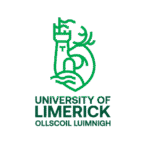
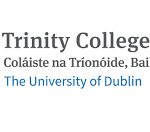
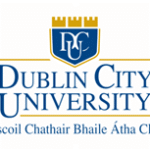
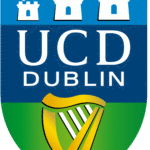
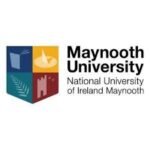
1. MS and M.Sc. in Computer Sciene and Masters in Education
2. MS and M.Sc. in Data Analytics
3. M.Sc. in Big Data Management
4. MEng in Digital and Medical Technologies
5. Occupational Therapy Masters
6. European Studies Masters
7. Exercise Physiology Masters
8. Applied Behavior Analysis Masters
8. Applied Behavior Analysis Masters Course Duration - 24 Months
9. Community Health Masters
10. Electronics Engineering Masters Course Duration - 12 Months
1. The admission process and requirements for starting a career in Ireland vary depending on the individual university or college.
2. It's important to note that the same university may have varying eligibility criteria and requirements for different courses.
3. In many cases, such as applying for graduate courses in Medicine, you are required to pass an entrance examination like the GAMSAT.
4. Most importantly, academic prerequisites for bachelor's courses vary by university. In general, a diploma is often accepted as the minimum entry requirement.
5. Undergraduate aspirants planning to study Medicine in Ireland are advised to consult with overseas education consultants, as they can assist in connecting with the International Office of the chosen college.
Irish Leaving Certificate in English | Ordinary level grade D | Ordinary level grade D
GCE O-Level English Language | Grade C | Grade C
GCE O-Level English Language | Grade C | Grade C
TOEFL | NILL | 220 (computer-based test) 550 (paper-based test)
GCE O-Level English Language | Grade C | Grade C
IELTS | A band score of 6.0-6.5 with no less than 6.0 band in any one component | A band score of 6.0-6.5 with no less than 6.0 band in any one component
University of Cambridge | Pass in Use of English Examination | Pass in Use of English Examination
Cambridge Advanced | Grade A | Grade C
Cambridge Proficiency | Grade C | Grade C
ETAPP | Grade C1 | Grade C1
ARELS oral examinations | Pass | Pass
PTE Academic | Minimum score of 36 | Minimum score of 63
Ireland is widely regarded as a top destination for international students, offering academic excellence, affordable education, and promising career opportunities. Before planning your educational journey to Ireland, it's essential to assess the overall cost to better prepare your budget. Partnering with an overseas education consultant like MasterKey Solutions can provide valuable guidance throughout this process.
Tuition fees typically make up the largest portion of study-related expenses in Ireland, though costs vary depending on the chosen program. For non-EU/EEA students, undergraduate tuition fees range from €10,000 to €25,000 per year, while master's and doctoral programs can cost between €9,000 and €35,000 annually.
In addition to tuition fees, international students in Ireland are required to pay supplementary charges for student services and campus-related activities, which can amount to up to €3,000 annually. If you plan to stay in Ireland for more than 90 days, registration with the Garda National Immigration Bureau (GNIB) is mandatory, with a registration fee of €300. The experts at MasterKey Solutions can guide you through the entire process of studying abroad from India.
Before making a decision, it’s important to research field-specific tuition fees, university-related expenses, city-wise cost of living, daily expenditures, and money-saving tips for international students studying in Ireland.
Some of Ireland’s popular cities for higher education include Galway, Maynooth, Dublin, Cork, and Limerick, each hosting top universities and institutes. Among these, Dublin has the highest concentration of universities but is also the most expensive city to live in. When consulting online for studying abroad, make sure to have a clear understanding of which city best suits your study and living preferences in Ireland.
Securing a study abroad scholarship can significantly ease the financial burden for many students. If you're planning to pursue your education in Ireland, it's essential to explore various universities, private organizations, and government bodies that offer scholarships specifically for international students. Indian students, in particular, should look into verified and credible opportunities designed to support their academic journey in Ireland.
GyanDhan Scholarship
When planning to study abroad, one of the most crucial steps is applying for a student visa as early as possible. The process can be time-consuming—often taking up to 8 weeks—and requires careful attention to form-filling and documentation.
If you're planning to study in Ireland, here are some key points to keep in mind regarding your student visa:
->Apply for your study visa up to 3 months before your intended travel date to Ireland.
->The course you plan to pursue must be listed on the Internationalisation Register, maintained by the National Qualifications Authority of Ireland (NQAI), and must also appear on the Interim List of Eligible Programmes (ILEP). You can find more information at www.nqai.ie.
->The maximum permitted duration of stay for courses at the degree level is seven years.
->Visa applications must be submitted through the Irish Embassy in India.
->If your course duration exceeds three months, you will need to apply for a ‘D’ type student visa.
->Once in Ireland, you may be allowed to work part-time under specific conditions applicable to international students.
1. Finish the online application form
2. Go through the Irish Embassy details where your documentation needs to be delivered.
3. Add a passport-sized photo.
4. Ensure your passport is valid for at least 12 months.
5. Pay the necessary application fee.
6. Pay your visa fee and other required charges for booking appointments.
7. Give a signed letter of application that clearly explains why you need the visa.
8. An acceptance letter from the Irish college, university or school, supporting that you are accepted and enrolled on a course of full-time education, including a minimum of 15 hours of well-organized daytime tuition every week.
9. This letter should have your name (the applicant) and verify the title/duration of the course.
10. It must confirm the amount of fees payable for your course and that the amount has already been paid.
11. If your chosen college has taken medical insurance on your behalf, details of this must be added in this letter of acceptance. If the university does not arrange it, you should arrange it yourself and offer proof of your application.
12. Ensure to keep copies of all your documents submitted.
13. Go through the list of all documents required to apply for a Visa.
14. Some extra registration fees of EUR 3000 are necessary.
15. After you reach Ireland, you must register with the GNIB. The GNIB will issue a residence permit/GNIB card. The fee for this card is around 300 Euros.
Single entry | INR 4100
Multi entry | INR 6800
Transit Visa | INR 1700
VFS Service charges for other nationals | INR 1700
- The English language proficiency, through these tests, are complously visa prerequisites.
- Although, the lower limits of the scores of visa issuance and admittance into the university/college will vary most of the time.
- The minimum requirements for visa issuance includes:
- 1. IELTS Academic: 5.0 minimum score
- 2. TOEFL: Minimum score of: 173 (Computer-based), 61 (Internet-based), 500 (Paper-based)
General student processing takes approximately 4 to 6 weeks.Through approval in principle scheme, the processing time takes 5 to 7 weeks.
Under this scheme, students from India who have been accepted into a course recognized by QQI (Quality and Qualifications Ireland) can apply for a study visa without paying the full college tuition fees in advance. This offers greater flexibility and financial ease for eligible students. To learn more about this scheme and check your eligibility, it is strongly recommended to consult a professional study abroad advisor in India. Upon arrival in Ireland, you will be required to complete your residence permit registration to finalize the remaining visa formalities. Additionally, you must submit a Declaration stating your intention to return to India upon completion of your academic program.
Visa Fees: Single-entry visa from India: €60 Multi-entry visa (after arrival in Ireland): €100
You must check online to see if your visa has been processed (employing your Visa application number). The whole list is updated weekly.
If you receive approval for a visa, the Embassy to which you deliver your documents will attach a visa to your passport.
However, if your visa is rejected, you may appeal the decision within 2 months
Most international students enrolled in full-time courses recognized by Ireland’s Department of Education and Skills (IDES) do not require an additional work permit to work in Ireland. However, they must possess the correct documentation to be legally employed.
When exploring study abroad intakes, it’s important to also understand the work regulations and employment environment in your chosen destination.
According to the official Education Ireland portal, international students holding a valid Immigration Stamp
2 are permitted to work under the following conditions:
Up to 40 hours per week during scheduled holidays:
1. June to September, and
2. June to September, and
Up to 20 hours per week during the academic term.
Part-time jobs
in Ireland typically involve basic roles such as working at a popular café or restaurant, assisting in retail stores, or taking up on-campus positions. The primary goal of these jobs is to help students earn some extra income during their free time. However, securing a part-time job can be challenging, especially for students with no prior work experience. Navigating the job market in a new country requires the right approach and guidance. By applying for Free Counseling, you can connect with expert advisors who will provide personalized tips and strategies to help you successfully land a part-time job in Ireland.
Students enrolled in
degree-level programmes in Ireland are permitted to undertake an internship or work placement, provided it is an integral part of their academic programme. However, there are specific conditions to be aware of:
The internship or work placement must not exceed 50% of the total duration of the course.
The employment must not be in a self-employed capacity.
Educational institutions are responsible for ensuring that all placements are relevant and appropriate to the programme of study.
As an international student
who has completed your course in Ireland, you are permitted to work full-time (up to 40 hours per week) on a temporary basis while you search for formal employment. It’s important that your chosen course aligns with roles listed on Ireland’s Critical Skills Occupations List, which enhances your chances of securing a relevant job.
Ireland’s job market is rapidly expanding, particularly in the tech and IT sectors, with global giants like Facebook, Amazon, Google, Apple, and others establishing their European headquarters in cities such as Dublin and Cork.
This growing industry presence makes Ireland one of the top destinations for international students, especially those aiming to build careers in technology and innovation.
- 1 Is there a way to change your course while study in Ireland?
- Yes, you can change your course only after completing one full academic year. However, the new course must be at the same level or a higher level than your current programme.
- 2 What are the limitations on study time in Ireland?
- Non-EEA students are allowed to study in Ireland for a maximum duration of 7 years. However, exceptions are made for certain cases, such as medical students, PhD candidates, or students facing special circumstances like medical conditions.
- 3 Which visa stamp doesn’t allow students to work in Ireland?
- Students holding a Stamp 2A visa are generally not permitted to work part-time in Ireland, as this visa type does not include employment rights.
- 4 Is studying in Ireland costly?
- Tuition fees in Ireland vary depending on the university and the specific course you choose to pursue.
- 5 What is the minimum level at which an international student can apply to study in Ireland?
- The minimum requirement for international students to apply for studies in Ireland is typically the completion of secondary education or its equivalent, such as the International Baccalaureate (IB) or GCE A Levels. In addition, applicants must demonstrate English language proficiency, usually through standardized tests like IELTS or TOEFL.
Post a comment Cancel reply
Related Posts
Study in United States
How well this mistaken ideas off denouncing pleasure & praisings will give you complete.
Study in UK
How well this mistaken ideas off denouncing pleasure & praisings will give you complete.
Study in Singapore
How well this mistaken ideas off denouncing pleasure & praisings will give you complete.
Study in New Zealand
How well this mistaken ideas off denouncing pleasure & praisings will give you complete.
 Demos
Demos  Colors
Colors 
 Docs
Docs  Support
Support 























